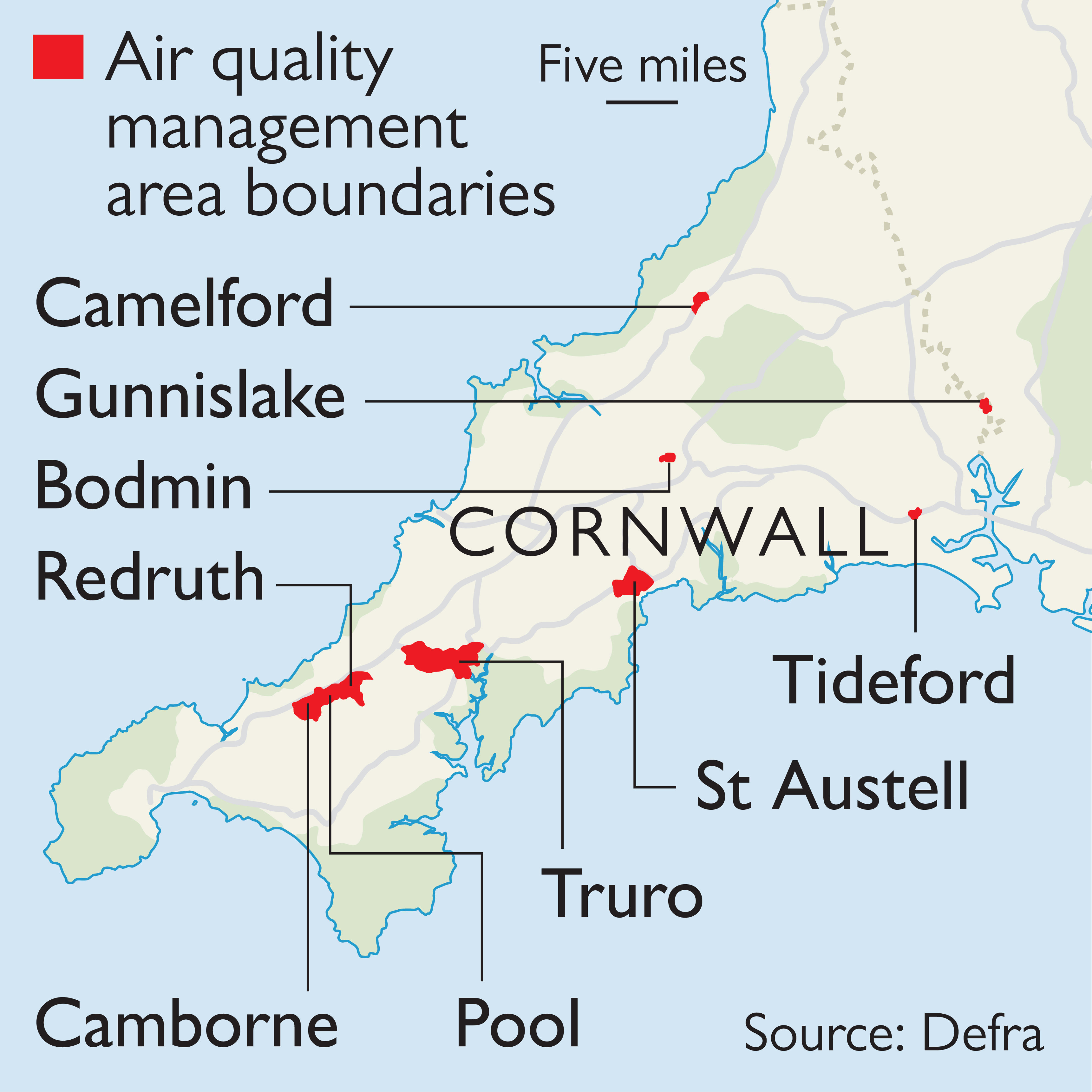Cornwall ‘to evacuate polluted zones’
Controversial plan considered by council

DOZENS OF families risk losing their homes under compulsory purchase powers and being moved elsewhere to protect them from air pollution.
Cornwall council is considering the measure as a cheaper alternative to building bypasses to take diesel vehicles away from pollution hotspots. The council said the proposal would be a last resort and admitted that it would be controversial, but said that it had a statutory duty to tackle air pollution and it might be the only affordable option.
About 40,000 deaths a year are linked to air pollution, and the toxic nitrogen dioxide gas produced by diesel vehicles is a significant cause.
Browse NEW or USED cars for sale on driving.co.uk
Many councils have introduced air quality management areas to tackle pollution where it exceeds EU limits. Cornwall council has created such areas in Camborne, Pool, Redruth, Bodmin, Tideford, Gunnislake, St Austell, Truro and Camelford.

Councillors debated a report that recommended seeking legal advice on compulsory purchase powers. The report said: “The project would involve development of land in a suitable nearby location to create a new neighbourhood where those exposed to the poorest air quality could be provided with a new property . . . through compulsory purchase or an optional swap.”
“The most important thing is the welfare of people in that community and if the only way is to relocate them, still within their own community but to a different location, perhaps that’s something we ought to explore.”
He said that the areas that could be targeted included congestion points on busy roads. In some places, homes could be removed to widen the road and improve traffic flow, he said.
It might be possible for homes to be reinhabited after a few years if the introduction of cleaner vehicles reduced the air pollution problem, he added.
Anna Heslop, a lawyer for ClientEarth, the campaign group that succeeded in a High Court action to secure a tougher air quality plan, said Cornwall council’s proposal “shows they understand the desperate need for action”.
However, she said: “We need to tackle the sources of air pollution, rather than moving people away from them. Central government has to do more to help local authorities tackle illegal and harmful levels of air pollution.”
Birmingham council said that it might impose a city centre charge on diesel cars. Sadiq Khan, the mayor of London, will introduce a £10 “toxicity change” for diesel cars later this year.
Baskut Tuncak, a UN expert on hazardous substances, said: “I encourage the UK government to fulfil its human rights obligations on air pollution.”
How to reduce air pollution
Options from the National Institute for Health and Care Excellence:
● Average speed cameras should be used on A roads and motorways to smooth the flow of traffic.
● New homes, schools and care homes should be built away from busy roads, and living rooms should be placed at the rear, farthest from the source of pollution.
● Councils should introduce “no idling” zones, particularly outside schools.
● Hedgerows should be planted between cycle paths and roads. Cyclists should also be allowed to pass more quickly through junctions where vehicles idle.
● Councils should consider the impact on air quality of speed humps, roadside noise barriers and street trees, which can trap pollutants beneath their canopies.
Ben Webster
This article first appeared in The Times




